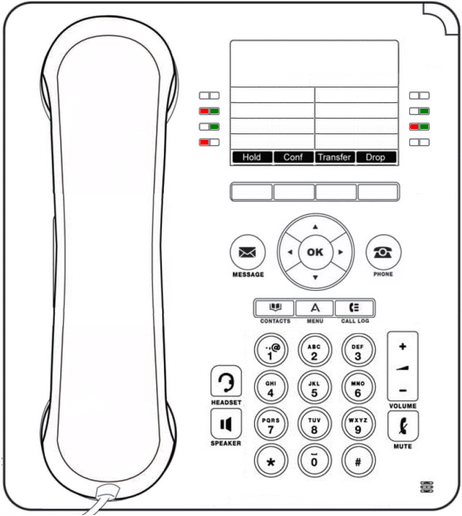





| Overview > DS Phones |






|
|
9408/9508 |
This type of phone can be used for system, centralized and personal administration functions covered by this document. For system and centralized administration the phone must be connected to one of the first two extension ports on the system.
The programmable buttons are arranged in 3 pages of 8 to match the 8 physical buttons. The buttons are numbered from top-down, left to right on each page. The ![]() left arrow and right arrow
left arrow and right arrow ![]() buttons are used to switch between pages during normal operation.
buttons are used to switch between pages during normal operation.

Page 1 |
|
Page 2 |
|
Page 3 |
||||||||||||||||||||||||
|
|
|
|
|
The button numbering order on these phones does not depend on the system mode. However, the default button usage is affected by the system mode.
| • | For systems running in key system mode, the first two programmable buttons, 01 and 02, are fixed as Intercom 1 and Intercom 2 buttons. |
| • | For systems running in PBX system mode, the first three buttons, 01 to 03, are fixed as call appearance buttons. |
9400 Series and 9500 Series phones are physically and functionally identical. However 9500 Series phones are only supported on IP Office system whereas 9400 Series phones are also supported on other Avaya telephone systems. This guide only covers use on IP Office systems.
© 2011 Avaya LLC
- Issue 3.b.-
11:29, 22 March 2011
(94089508.htm)
Performance figures, data and operation quoted in this document are typical and must be specifically confirmed in writing
by Avaya before they become applicable to any particular order or contract. The company reserves the right to
make alterations or amendments at its own discretion. The publication of information in this document does not
imply freedom from patent or any other protective rights of Avaya or others.
All trademarks identified by (R) or TM are registered trademarks or trademarks respectively of Avaya LLC. All other
trademarks are the property of their respective owners.
Last Modified: 31/01/2011